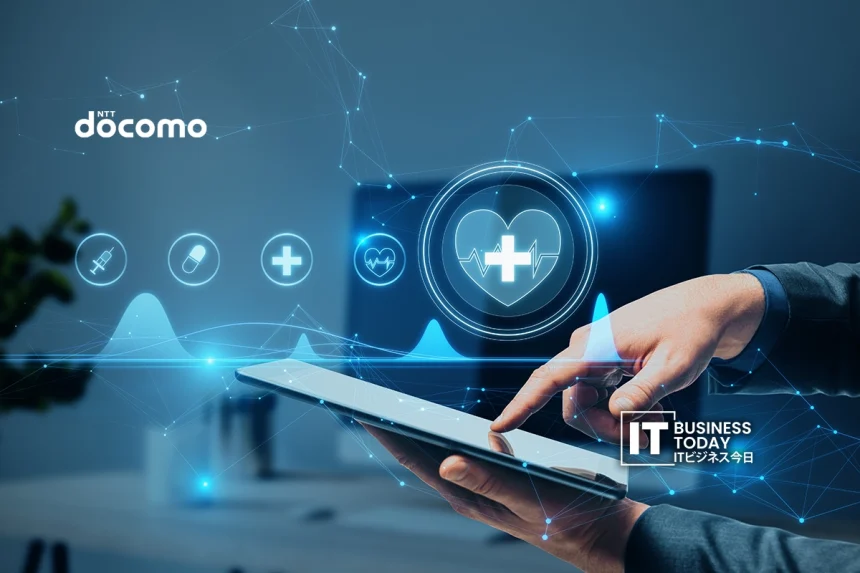NTTドコモが新しい技術を開発。身体的苦痛と精神的苦痛の両方を測定することができます。このイノベーションはデジタルヘルスを変え、人間中心のAIを改善します。2025年11月に開始されたこのイノベーションは、医療専門家、ウェルネス企業、政策立案者の痛みの捉え方や扱い方を変えることができます。痛みは人類にとって最も個人的な体験のひとつです。.
測定可能な痛みの新時代
従来、痛みは自己申告によって評価されており、そのレベルは一貫性がなく、主観的なものになりがちでした。一方、この新しいシステムは、A.I.主導のデータ分析と、神経パターンを認識する生体センサーを組み合わせることで、痛みの強さや心理的苦痛のレベルをより客観的に評価することができます。.
今回発表されたシステムは、表情、声のトーン、体の動きのパターン、心拍変動や皮膚伝導率などの生理学的マーカーからのデータを統合。ドコモのプラットフォームは、機械学習モデルを使用してこれらの入力を統合することで、定量的な「痛み指数」を生成し、より迅速でパーソナライズされた治療を可能にします。.
こちらもお読みください: マイクロソフト、健康AIの「スーパーインテリジェンス」チームを発表
同社によると、長期的な目標は、痛みやストレスを早期に発見することで生活の質を大幅に向上させることができるため、職場、スポーツ、高齢者介護施設など、病院以外の環境でも使用できる包括的な評価ツールを作成することです。.
技術と健康の架け橋
日本の国家戦略は、このプロジェクトのためにデジタルヘルスイノベーションに焦点を当てています。高齢化という喫緊の課題に取り組んでいます。国民の29%以上が65歳以上である日本では、迅速かつ効果的なヘルスケアソリューションが急務です。.
痛みを数値化することで、医師は症状をより早く発見し、適切な治療を行うことができます。また、保険会社や製薬会社は、このようなデータを利用して、健康モデルや臨床試験、薬剤の有効性評価を改良し、エコシステムの効率化を図ることができます。.
日本のハイテク産業への影響
ドコモのイノベーションは、電気通信とバイオメディカル・テクノロジーという、日本が急速に取り込みつつある分野の交差点がますます拡大していることを強調するものです。AIが自動化やコミュニケーションにとどまらず、身体的な健康とデジタル・インテリジェンスとのギャップをどのように埋めることができるかを社内で研究しています。.
日本のAIヘルスケア市場は急成長。業界の予測によると、2030年までに$25億円を超えると予想されています。センサー技術、データ分析、ウェアラブルに注力する企業は、新たなコラボレーションのチャンスを見つけるでしょう。この成長は、非侵襲的な健康モニタリングツールに対するニーズの高まりに起因しています。.
このプロジェクトは、Google HealthやAppleのHealthKitのようなグローバルリーダーに対して、日本の優位性を高めるものです。ドコモは、日本の文化や医療に適したソリューションをデザインします。これは、倫理的で人間中心のAI利用におけるドコモの役割を後押しします。.
ビジネスと経済への影響
ビジネスの観点からは、NTTドコモがさまざまな業界で新たな収入源を得るきっかけになるかもしれません。病院での診断目的での利用、従業員のストレスレベルを把握するためのウェルネス・プログラムでの雇用主による利用、セラピー・サポート・システムのためのメンタルヘルス・スタートアップへのライセンス供与などが考えられます。.
さらに、このようなシステムから得られるデータは、匿名化され倫理的な方法で管理されれば、公共政策や予防医療を支える国の健康分析に反映させることができます。テクノロジー企業にとっては、ウェルビーイング・アナリティクスに関するAI-as-a-serviceモデルの扉が開かれ、日本のヘルステック・スタートアップのエコシステムにも成長を促す可能性があります。.
革新と倫理のバランス
メリットは明らかですが、この技術には倫理的な懸念もあります。痛みのような個人的な感情を測定することは、プライバシー、同意、データの取り扱いに関する懸念を引き起こします。NTTドコモはAIにおけるデータと倫理の保護に取り組んでいます。NTTドコモは、AIにおけるデータと倫理の保護に取り組んでいます。.
医療におけるAIに対する日本の慎重なアプローチは、責任と社会的価値を強調しています。このテーマに関する世界的な議論が活発化するにつれ、他の国々にも刺激を与える可能性があります。.
結論
AIが人間の幸福を促進する未来に対する日本のビジョンを示す画期的な技術。これは、個人の経験を実際のデータに変えるものです。これにより、テクノロジーは感情、健康、人体と新鮮な方法でリンクすることができます。このイノベーションは、一般的なものになりつつあります。それは日本のヘルスケアとハイテク分野を変革する可能性があります。この変化により、日本は共感型AIで世界をリードすることができるでしょう。イノベーションとヒューマンタッチの融合。.








